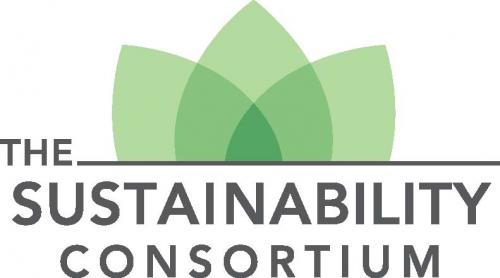Blog
Watch the Brand New GHG Protocol Animation Video
GHG Protocol is proud to premiere its brand new animation video. The video tells the story of the two new standards through compelling animation.
WRI-Facilitated U.S. Registry Launched
WRI’s Pershing Named No. 2 Climate Diplomat for Secretary Clinton
Dr. Jonathan Pershing today becomes the new Deputy Special Envoy for Climate Change under U.S. Secretary of State Hillary Clinton. Pershing will work alongside U.S. Special Envoy for Climate Change Todd Stern, who was appointed by Clinton on January 26 as President Barack Obama's lead climate negotiator.
WRI Launches GHG Protocol Mitigation Accounting Initiative
Many countries are planning and implementing a variety of climate change policies and GHG reduction goals at the national and sub-national levels. As they do so, they are facing new pressures to account for GHG reductions achieved through individual mitigation actions and policies and to track progress toward GHG reduction goals.
Taking Corporate GHG Accounting to Scale: Bali Side Event Introduces New Tools for GHG Management
Survey on Calculation Tools
The GHG Protocol aims to ensure wide and effective use of its standards and support companies in the completion of accurate, relevant, complete, consistent and transparent GHG inventories. But the landscape for GHG calculation and verification procedures has been evolving quickly, prompting the need for a public survey to help identify the calculation priorities of our users, along with their perspectives on GHG inventory verification and training in accounting.
Tsinghua University and WRI Host First Stakeholder Workshop in China for New Product and Supply Chain Standard
The Sustainability Consortium members vote to adopt the Greenhouse Gas Protocol Product Standard
Workshop: Integrando Agropecuária aos Inventários Corporativos de GEE
Inscreva-se agora e contribua para a próxima geração de ferramentas de gestão de gases de efeito estufa (GEE) relativa à agropecuária Brasileira. O GHG Protocol cordialmente lhe convida a participar do encontro cujo foco será ajudar no desenvolvimento de ferramentas (um protocolo de contabilização de GEE e um conjunto de fatores de emissão) específicas para o Brasil.
WRI and Sun Talk Energy and Sustainable Business at 2008 Net Impact Conference
WRI participated in the annual 2008 Net Impact Conference, held at the Wharton School of Business in Philadelphia on November 15th. GHG Protocol joined a panel for the three-hour OpenEco Energy Camp Saturday morning session, sponsored by Sun Microsystems. The session centered around Sun’s global online-community OpenEco.org, that provides free tools to help participants measure, track, and compare energy and greenhouse gas (GHG) performance.
WRI Joins The Sustainability Consortium
WRI Team Travels to Nairobi to Launch LULUCF Guide to Project Accounting
On Nov. 7, Florence Daviet and Suzie Greenhalgh of WRI will travel to Nairobi, Kenya to present the “Land use, Land-use change and Forestry Guidance for GHG Project Accounting” (LULUCF) at the Climate Change Conference of Parties (COP-12).
Brighter Planet Launches Cloud-Based Carbon Middleware Platform
WRI Hosts Workshop on Energy Savings and CO2 Reductions in the Chinese Cement Industry
As cement production is responsible for five percent of global carbon dioxide emissions, it is considered a key target for climate change mitigation. China alone accounts for 45 percent of global cement manufacture and consumption
Written Comments on Draft Product and Scope 3 Accounting and Reporting Standards
The first drafts of the GHG Protocol Product and Scope 3 Accounting and Reporting Standards were released for stakeholder review on November 11th 2009. The draft standards were developed over a nine month period between January and October 2009 through the work of 7 technical working groups comprised of more than 160 members, with strategic guidance provided by a 25 member steering committee.
Revised Aluminum Tool Now Available
Sixty Corporations Begin Measuring Emissions from Products and Supply Chains
On January 20th, sixty corporations begin measuring the greenhouse gas emissions of their products and supply chains by road testing a new global framework that is part of the
Seeking Public Comments on New Protocol for City-level GHG Emissions
We are excited by the release of the first draft of the Global Protocol for Community-Scale GHG Emissions (GPC) to help cities around the world measure and report greenhouse gas (GHG) emissions using a more consistent protocol. Today begins a one-month public comment period on the protocol to ensure it will fit the needs of those who will be implementing it.
Quebec product footprinting pilot project launched using the GHG Protocol Product Standard
The GHG Protocol Product Life Cycle Accounting and Reporting Standard will be used by CIRAIG and the Government of Quebec in the first stage of their carbon footprint certification initiative.
We Need Your Help: Take Our Survey on Greenhouse Gas Accounting for the Financial Sector
The Greenhouse Gas (GHG) Protocol recently partnered with the UNEP Finance Initiative in a critically important endeavor – developing guidance to help the financial sector measure its ”financed emissions” and track reductions. These types of emissions, which are associated with lending and investments, are the most significant part of a financial institution’s carbon footprint.





